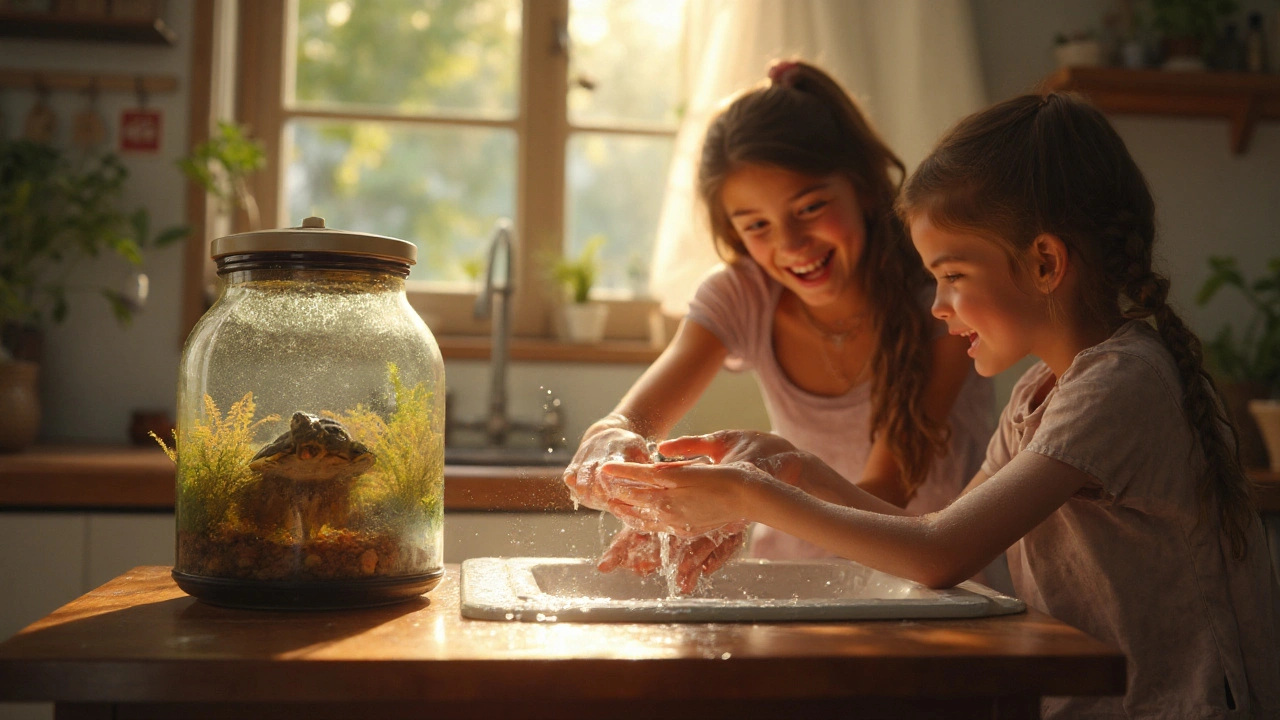Zoonotic Salmonella: Key Facts and How to Stay Safe
Ever wonder why a pet or a farm animal can make you sick? That's zoonotic salmonella – a type of bacteria that jumps from animals to humans. It shows up as stomach upset, fever, and diarrhea, and it can hit anyone, from kids playing with puppies to adults handling raw meat. Knowing the basics can keep you from getting sick and help you act fast if symptoms appear.
How Zoonotic Salmonella Spreads
Most often, the bacteria lives in the guts of birds, reptiles, and cattle. When an animal poops, the bacteria can end up on its feathers, skin, or in its droppings. If you touch those surfaces and then touch your mouth, the germs travel inside. Raw eggs and undercooked poultry are classic culprits because the bacteria can hide inside the food. Even pet turtles, lizards, and hamsters can carry salmonella without looking sick.
Another sneaky way is through cross‑contamination. Cutting boards, knives, and countertops that touch raw meat can spread the bugs to fresh veggies or other foods. The bacteria can survive for weeks on dry surfaces, so a quick wipe isn’t enough – you need hot, soapy water or a disinfectant.
Kids are especially vulnerable because they often put their hands in their mouths after playing with animals. That’s why many outbreaks are linked to farms open to the public or petting zoos. The risk goes up in households with immunocompromised members, pregnant women, or the elderly.
Preventing Infection at Home
Wash your hands—lots of times. Use warm water and soap for at least 20 seconds after handling animals, cleaning cages, or touching raw food. If you’re caring for a sick pet, wear disposable gloves and wash them off when you’re done.
Keep raw meat separate from everything else. Store it on the bottom shelf of the fridge, use a dedicated cutting board, and clean all tools with hot, soapy water. Cook poultry, eggs, and pork to an internal temperature of 165°F (74°C). A meat thermometer takes the guesswork out of it.
Sanitize surfaces regularly. A kitchen spray with bleach (1 tablespoon per quart of water) works great on counters and boards. For pet supplies, rinse cages, water bowls, and terrariums daily with hot water and replace bedding often.
Teach kids not to bite or kiss animals on the mouth, and to avoid putting their hands in their faces after playing with pets. If a child loves a turtle, make sure an adult supervises hand‑washing afterward.
If you suspect salmonella—fever, cramps, watery diarrhea—stay hydrated and see a doctor. Adults often recover without medicine, but kids, seniors, and people with weak immune systems might need antibiotics.
Remember, the goal isn’t to avoid animals altogether; it’s to enjoy them safely. A few simple habits—hand washing, proper cooking, and cleaning—can stop zoonotic salmonella before it starts.
- September 22, 2025
- Comments 19
- Health and Wellness

